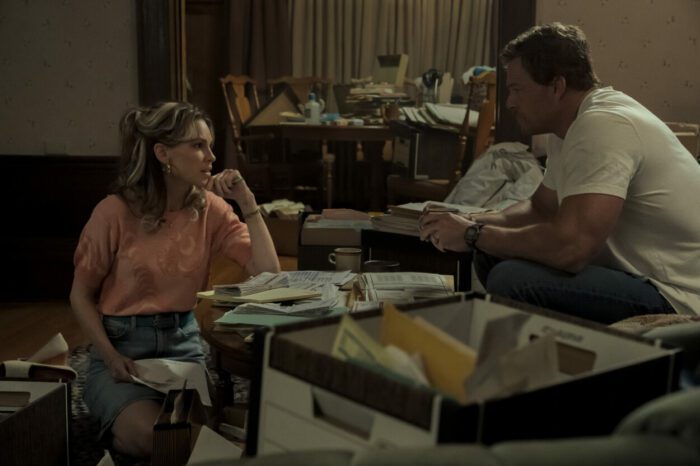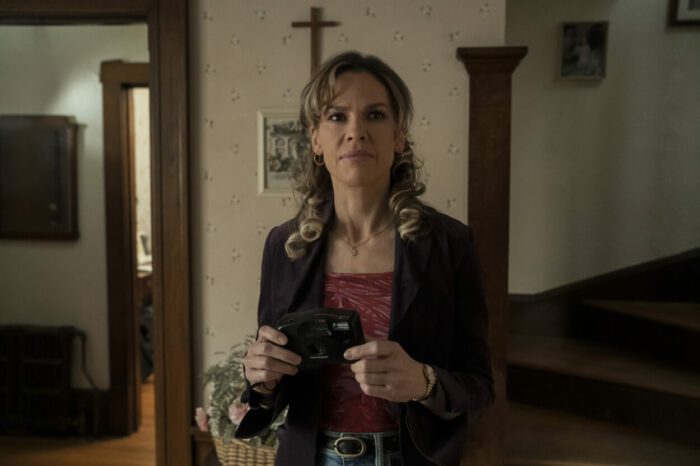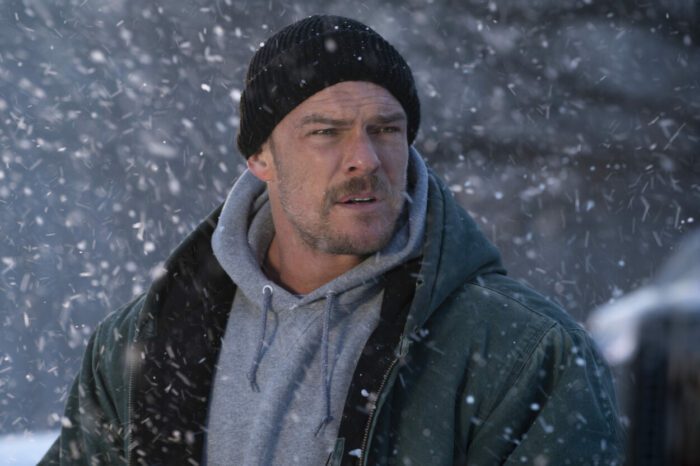The core of Ordinary Angels is one of a giving soul. Delineation comes in what is being given and why. Much of the dramatized true story of the film centers around fundraising and monetary donations to help a Kentucky family in 1993 alleviate insurmountable medical debt accrued from the death of the family’s matriarch to Wegener’s Disease and the failing liver of her youngest surviving daughter due to biliary atresia. Charity to give to those in need is a wonderful act worth stumping for and celebrating.
Even so, Ordinary Angels seeks a step higher and better than only charity. Rather, it is aspiring to show and encourage kindness. Leave it to a professional help article on Linkedin to define the key difference between charity and kindness by stating:
“Charity is focused on giving to those in need, while kindness is focused on being considerate and compassionate towards others. Charity is about intentionally helping those who are struggling, while kindness is about treating everyone with respect and empathy.”
The article goes on to disseminate how plenty of charity exists without kindness and vice versa, and that two acts overlap when the charity goes towards something one believes in. That precise combination of circumstances creates the beautifully demonstrated emotional zenith of Ordinary Angels.

Alas, potential viewers of the film are going to see the faith-centered creative team (The Case for Christ director Jon Gunn and notable producers Dave Matthews and the Erwin Brothers) highlighted by the marketing efforts and assume this is some kind of cinematic religious extortion. They would be way off. The presented cause to believe in greater than some fancy church in Ordinary Angels is a sick little girl. Nothing more is necessary.
As hinted at above, blue collar roofer Ed Schmitt (current Jack Reacher tough guy Alan Ritchson) was a new widower raising two young daughters, big sister Ashley (Skywalker Hughes of TV’s Joe Pickett) and the ill Michelle (Emily Mitchell of Priscilla and Women Talking) near Louisville. His mother Barbara (TV and film veteran Nancy Travis) lived with them as their lone helper while Ed was underwater on his mortgage, tremendously behind on massive medical bills that swelled to six figures, and faced a one-year estimate of survival for Michelle without a vital liver donation. Caught in a costly tailspin of one thing going wrong after another, Ed reached the “what did I ever do to you” moment of questioning faith as needs constantly fell short for him and his family.

Through pure convenience store happenstance on a hangover day, the tequila-shooting and bar-dancing hairdresser Sharon Stevens (two-time Academy Award Best Actress winner Hilary Swank) saw a local newspaper headline at the checkout counter for the funeral for Ed’s wife and the current medical state of Michelle. Sparked by the news, Sharon’s hot mess self attended the funeral and met the Schmitt family. Seeing the family’s anguish and fueled by the pastor’s (Gotham’s Drew Powell) plea to “find a way to help this family,” she set her mind to do just that her own way.
Sharon began to involve herself directly with the Schmitt family. What started as a hair-a-thon event from Sharon that nets over $3,000 for Ed and Barbara turned into computerized flyers for public attention, business proposals to get Ed more roofing work, and face-to-face boardroom pitches to debtors and benefactors alike. As Sharon liked to tell it, she was a woman that didn’t take “no” for an answer very well. Her pitch was simple: What if it was your daughter? Sure enough, the power of Sharon’s presentation found repeated success, even as Michelle’s condition worsened during the onset of the historic North American Cold Wave of 1994 and the kinds of needs she was asking for escalated in difficulty and urgency.
From that very magnanimous pitch, the charity and kindness collide in Ordinary Angels for moments of sweep and cheer. All the way to a peril-packed third act, strangers are helping strangers with no expectation of anything in return. That’s the sweet spot of empathy that the cynics will find too good to be true from this essentially villainess movie (unless you count bills in envelopes as the indomitable evils they can be). Call it a shame and their loss. Compassionate help is the true heroism, and you love to see it emphasized.

It is mighty nice to see the beefy stature of Alan Ritchson granted a plum role where he did not have to punch people and dispense broken bones to bad guys. Playing his age and wearing weariness like a weight greater than anything on the gym rack, Ritchson comports himself quite well. The way he portrays unhealed loss and a father’s initial resentment towards the charity he couldn’t provide creates the right and proper aura of dedication, fragility, and stalwartness. Seeing Alan Ritchson in this kind of Dad Mode is reminiscent of the late Paul Walker in Hours, where this unseen side of his appeal and talent should have been tapped sooner and now, going forward, needs to be utilized more often.
Ritchson’s granite fortitude is paired with superb energy and effort from Hilary Swank. Sharon’s journey as an alcoholic willing successes from the stumbles of relapses plays pretty typical, including a prerequisite estranged son (Dempsey Bryk of the Willow series). Nevertheless, Swank brought a conviction to show that her character’s losses and pains are also not instantaneous fixes for plot convenience. Lest we forget, there was an Oscar winner at work selecting the performance concentrations for the right effect with the right behaviors.
Ordinary Angels was not a screenplay scribbled on the back of a church bulletin. Former Oscar-nominated actress Meg Tilly (Agnes of God) and rising star writer/director Kelly Fremon Craig of The Edge of Seventeen fame—who narrowly missed an Adapted Screenplay Academy Award nomination this year with the indie hit Are You There God? It’s Me Margaret—brought this harrowing tearjerker to the big screen with appreciated vigilance. If they wanted to, Ordinary Angels could have been solely the final snowstorm gauntlet told in real-time to create a heck of a two-hour emergency thriller. Instead, their script carried a wise prudence tempering the propensity to lay struggles and positive responses so thick the central cause is lost in showy actions. The family priority remains highest, creating a moving experience for the heartful rather than the heartless.



